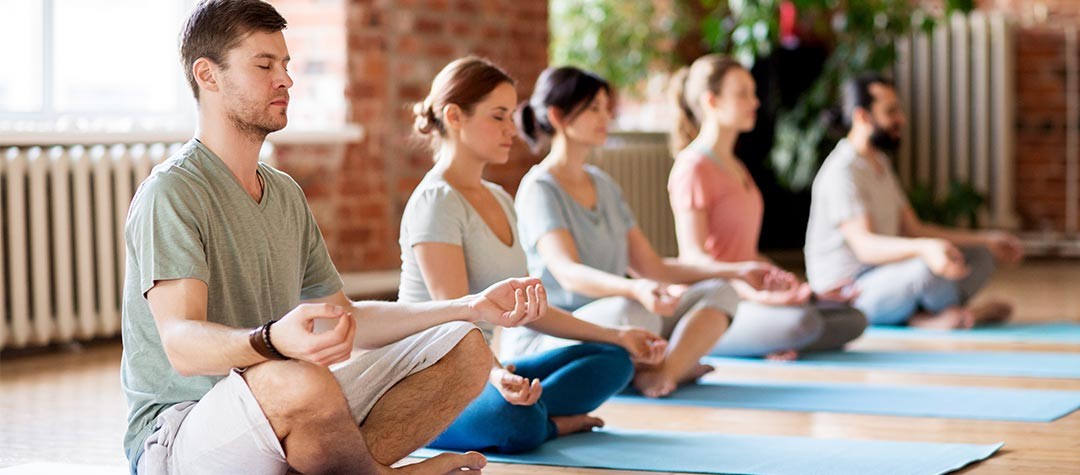Increasingly, research is showing that regular exercise can ward off cerebral diseases such as Alzheimer’s, dementia and Parkinson’s, as well as relieve stress and anxiety, alleviate depression, boost creativity and preserve mental faculties and skills.
Exercise can also enhance the way you feel about yourself – your body image and self esteem – which has a knock-on positive effects in other areas of your life, such as work and relationships.
How does exercise influence mental function?
As far as cognitive function is concerned, it seems that exercise increases the production of key brain chemicals that encourage the growth of brain and nerve cells and help develop new neural pathways (lines of communication between the brain and the body). It also improves blood and oxygen flow to the brain and promotes the growth of blood vessels, allowing brain tissue to be nourished and preserved.
A study from the University of Illinois measured the mental ability of 18-24 year olds by giving them two computer tests to do after a rest period, and after fast running on a treadmill. After the running, their decision-making process was faster and more of their answers were correct.
Exercise improving creativity
Exercise can also help get your creative juices flowing. Research from Greater London's Middlesex University found that creative thinking and problem solving improved after prolonged aerobic exercise. Exercise also boosts blood flow to the brain, particularly the right hemisphere, which is associated with creativity and imagination.
Stuart Biddle, exercise psychology professor at UK's renown Loughborough University, says that repetitive, rhythmic activities, such as swimming laps or treadmill running, are best for cerebral benefits, as they require little conscious thought. But you can’t be a flash in the pan, if you want brains as well as brawn – the Illinois study found that when the subjects stopped training, the improvements disappeared.
Kick out stress with exercise
While stress is a necessary and important function, 21st century life doesn’t allow us to fight or flee from stressful situations. Nope, we just sit there and simmer, while our stress hormones hike up blood pressure and heart rate, thus increasing the risk of heart attack or stroke. But research shows that regular moderate activity helps dissipate these hormones, and has a relaxing and calming effect on the body and mind.
The better shape you are in, the more able your body is to handle stress – concluded researchers from Texas A&M University.
The better shape you are in, the more able your body is to handle stress – concluded researchers from Texas A&M University. They found that physically fit subjects were better able to cope with unexpected physical and mental challenges than unfit subjects. According to a report on the influence of exercise on mental health from Arizona State University, aerobic exercise is the best choice for anxiety reduction.
Exercise putting a smile on your face
Okay, so you aren’t always smiling when you head for the gym – but I bet you feel happy when you come out! There is increasing evidence of a link between regular activity and improved mental health. Half an hour of exercise a day, six days a week, had effects equivalent to a course of prescribed medication for mildly depressed patients, according to a major study this year, while research from the University of Indiana showed that walking for 20 minutes or more per day had the same positive outcome as a course of psychotherapy.
The reason most frequently attributed to explain why exercise makes us feel good is the flood of endorphins it causes (the body’s own morphine-like hormones), but increasingly, research is questioning the role of endorphins and pointing more towards a psychological rather than physiological cause. Exercise provides a distraction from the grind of daily life – giving us ‘time out’ from the rat race. It also gives a sense of accomplishment, which sport psychologists call ‘mastery’, boosting self-esteem and proffering a sense of control over our lives. But don’t stick to yoga and Pilates if you need a mood boost – the Arizona State University report found that vigorous exercise works best for depression.
It's never too late to exercise
Even if you haven’t been a regular exerciser all your life, it’s never too late to reap the benefits. Exercising for half an hour at least twice a week during midlife can significantly cut a person's risk of dementia later, say researchers in Lancet Neurology.
People in their late 40s and early 50s could reduce their risk of dementia by about 50 per cent, according to the study. And it’s not boatloads of exercise, either – physical activity which lasted 20-30 minutes at least twice a week, and which was enough to cause breathlessness and sweating, was sufficient. Meanwhile, a study of elderly people in North Carolina found that a four-month exercise program resulted in significant improvements in memory, planning, organization and task juggling.
Research shows a link between a lack of activity and Alzheimer’s disease...
Further recent findings on physical activity and cognitive function may persuade you that you simply must get working out more often. Research shows a link between a lack of activity and Alzheimer’s disease, while tests on mice suggest that regular workouts might halt the progression of Parkinson’s. The study showed that sustained exercise, for a time span of at least three months, prevented cell death in the part of the brain that controls movement and is impaired in the disease.















